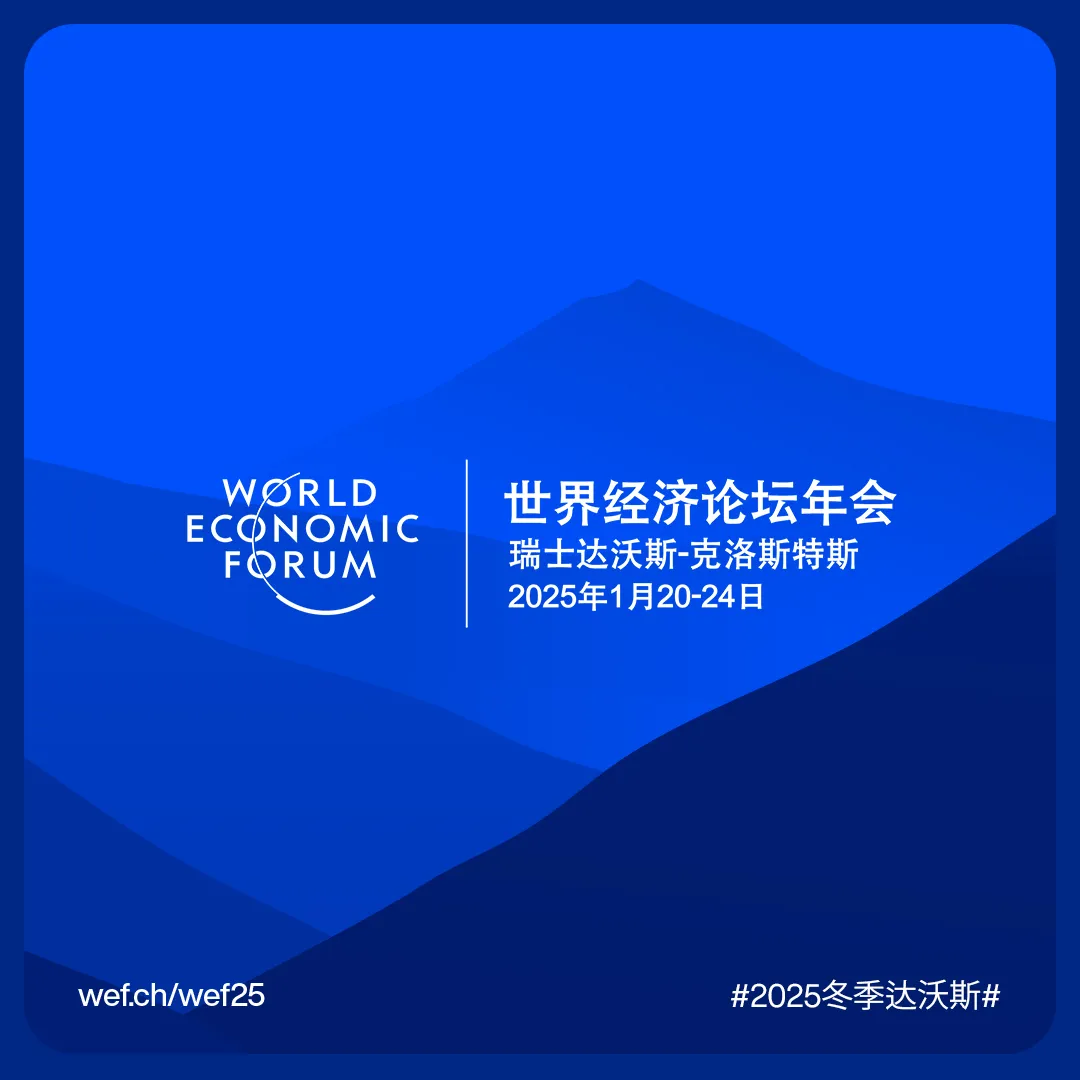54% of large organizations believe that supply chain interdependence is the biggest obstacle to achieving network resilience.
Geopolitical turmoil has reshaped people's perceptions of risk, with one-third of CEOs identifying cyber espionage and the loss of sensitive information/IP theft as their top concerns.
The increasingly complex cyberspace has further exacerbated online inequalities, deepened the divide between developed and emerging economies, widened gaps across industry sectors, and widened the chasm between large and small organizations.
To read the full report, please click "Read More." Stay updated on the 2025 World Economic Forum Annual Meeting by visiting the official WEF website. And don’t forget to join the conversation using the hashtag #2025WinterDavos—follow and share the latest updates from the event on social media!
The World Economic Forum’s newly released "Global Cybersecurity Outlook 2025" report today highlights that the increasingly complex landscape of cyberspace is having a profound impact on organizations of all types and countries around the world. This complexity in cyberspace stems from the rapid advancement of emerging technologies, an uncertain geopolitical environment, evolving threat landscapes, regulatory challenges, vulnerabilities arising from interdependent supply chains, and the growing gap in cybersecurity skills.
The increasingly complex cyberspace has further exacerbated online inequalities, deepened the divide between developed and emerging economies, widened gaps across industry sectors, and widened the chasm between large and small organizations.
"As technology accelerates rapidly, cybercriminal tactics become increasingly sophisticated, and supply chains grow deeply interconnected, cyberspace is becoming more complex and challenging than ever before. In this context, the 'Global Cybersecurity Outlook' provides critical insights for leaders across industries to tackle these challenges and strengthen cybersecurity resilience," said Jeremy Jurgens, Managing Director of the World Economic Forum. "To ensure that everyone can benefit from digital advancements, collaboration between public and private sector stakeholders is essential."
The report identifies the key factors driving the accelerated complexity and unpredictability of cyberspace, while also thoroughly analyzing their cumulative impact on organizations' and nations' cybersecurity landscapes. These factors include:
Interdependence of Supply Chain Risks:Increasingly deepening interdependence has created vulnerabilities in interconnected supply chains, making cyberspace ever more complex; 54% of large organizations believe that supply chain challenges represent the biggest obstacle to achieving cyber resilience.
Geopolitical Tensions:The widespread volatile environment has reshaped people's perceptions of risk, with one-third of CEOs identifying cyber espionage and the loss of sensitive information/IP theft as their top concerns, while 45% of cybersecurity leaders are worried about disruptions to operations and business processes as a result.
Security in the Age of Intelligence:We must both recognize the risks AI poses to cybersecurity and swiftly embrace its deployment. However, this dilemma can be overcome by implementing essential security measures to ensure network resilience. In fact, 66% of organizations anticipate that AI will significantly impact cybersecurity by 2025—yet only 37% report having already established workflows to assess the security of AI tools before rolling them out.
Evolution of the threat landscape:Driven by emerging technologies, cyber threats have reached an unprecedented level of sophistication, making it easier for malicious actors to carry out fraud and social engineering attacks, spread misinformation, and deploy ransomware—all at speeds, scales, and scopes that far surpass previous trends. Nearly 47% of organizations say their biggest concern is the enhanced ability to counteract defenses, fueled by the rise of generative AI.
Regulation:While regulation can enhance cyber resilience, 76% of chief information security officers attending the 2024 Cybersecurity Annual Conference said that regulatory fragmentation poses a significant challenge to corporate compliance.
Labor Challenges:Since 2024, the digital skills gap has widened by 8%, with two-thirds of organizations lacking the essential talent and expertise needed to meet security requirements. Only 14% of organizations confidently report that they currently have the right talent and skills in place.
"Cybersecurity threats are now more complex and unpredictable than ever before, directly impacting an organization's financial stability. To effectively address the disruptive power of AI, supply chain vulnerabilities, and geopolitical tensions, stakeholders must collaborate more proactively—working together to build robust cyber resilience across all industries," said Paolo Dal Cin, Accenture’s Global Security Lead. "Senior leaders must prioritize security from the ground up, enabling them to confidently navigate these challenges while leveraging cybersecurity as a catalyst to safeguard business and organizational resilience."
The report calls for shifting the focus from cybersecurity to enhancing cyber resilience. Cyber resilience reflects an organization's ability to mitigate the impact of major cyber incidents while continuing to advance its objectives. Additionally, the report underscores the necessity of assessing cyber risks from a socio-economic perspective. This is critical for both organizations and nations, as it enables more effective resource allocation and strengthens their capacity to withstand and recover from cyber threats.
"The 2022 cyberattack incident in Costa Rica has served as a wake-up call, highlighting the urgent need for a fundamental shift—viewing cybersecurity not as a mere expense, but as a critical investment in our future," said Paula Bogantes Zamora, Costa Rica’s Minister of Science, Technology, Innovation, and Telecommunications. "Through this event, we’ve realized the importance of collaborating closely with neighboring countries to strengthen our collective ecosystem and enhance the cyber resilience of Costa Rica—and the entire region."
The "2025 Global Cybersecurity Outlook" report provides a comprehensive analysis of the increasingly complex cybersecurity landscape, offering leaders actionable and insightful guidance to navigate the ever-evolving digital realm. The report underscores the critical need for all stakeholders in the ecosystem to collaborate closely, ensuring the network connectivity that is essential for driving digital economic growth—and effectively addressing the growing shortage of cybersecurity talent. At the same time, the report explores how cybersecurity impacts economic development, emphasizing that leaders must take a proactive role in prioritizing security, transforming it into a core engine propelling business success.
Regarding the 2025 World Economic Forum Annual Meeting
The 2025 World Economic Forum Annual Meeting will take place from January 20 to 24 in Davos-Klosters, Switzerland, bringing together global leaders to discuss the theme "Collaboration in the Age of Intelligence." The event will focus on fostering new partnerships and inspiring fresh insights, aiming to shape a more sustainable and inclusive future amid rapid technological advancements. Key areas of emphasis include reimagining growth, shaping industries for the intelligent era, investing in people, safeguarding our planet, and rebuilding trust. For more details about the annual meeting, visit the World Economic Forum website.
Feel free to share this on WeChat Moments; please leave a comment below the post if you’d like to republish.
The World Economic Forum is an independent and neutral platform designed to bring together diverse perspectives to discuss critical global, regional, and industry-specific issues.
Follow us on Weibo, WeChat Video Accounts, Douyin, and Xiaohongshu!
"World Economic Forum"



